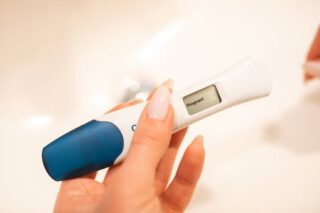
More Infertility Articles
Recognizing the Symptoms of Implantation: What to Look For

Experiencing early pregnancy signs can be an exciting yet confusing time. If you’re trying to conceive, you may be eager to recognize the symptoms of implantation. Implantation occurs when a fertilized egg attaches to the lining of the uterus, marking the beginning of pregnancy. Below, we explore the common signs that may indicate this crucial stage has occurred.
What Are the Symptoms of Implantation?
Implantation can cause several symptoms that vary in intensity and duration. Remember, each individual may experience different signs, and some might not notice any at all. Here, we outline the most commonly reported symptoms:
- Spotting and Light Bleeding: Often known as “implantation bleeding,” this is one of the first signs women notice. It typically involves light spotting a week to twelve days after ovulation.
- Cramping: Similar to menstrual cramps, implantation cramping occurs when the embryo embeds itself into the uterine wall. These cramps are generally milder and shorter in duration compared to menstrual ones.
- Nausea: Early pregnancy, including the implantation phase, can cause a feeling of nausea. Though not every expectant mother experiences this, it’s often among the first symptoms.
- Breast Changes: Hormonal shifts can cause tenderness, swelling, or changes in the nipples. These symptoms may start around the time of implantation.
- Mood Swings: Hormonal fluctuations during the early stages of pregnancy can lead to emotional changes or heightened sensitivity.
How to Differentiate Implantation Symptoms from PMS?
Distinguishing between the symptoms of implantation and premenstrual syndrome (PMS) is challenging as they can be quite similar. Both scenarios involve hormonal changes that mimic one another. Here are some distinctions:
- Duration of Symptoms: Implantation symptoms might start a little earlier and last for a shorter duration compared to PMS symptoms.
- Intensity of Cramps: Implantation cramps are usually less intense than those experienced during PMS.
- Bleeding Characteristics: Implantation bleeding is usually lighter and shorter compared to a menstrual period.
When to Take a Pregnancy Test
While recognizing the symptoms of implantation can be indicative of early pregnancy, the most reliable way to confirm pregnancy is through a test. It’s best to wait until a few days after your missed period for the most accurate result. This allows time for enough pregnancy hormone, hCG, to accumulate in your system to be detected.
Supporting Your Health During the Early Stages
Should you suspect implantation and early pregnancy, it’s vital to focus on wellness. This includes maintaining a balanced diet, staying hydrated, and getting adequate rest. Certain vitamins and supplements are known to support brain health and cognitive function, both of which are beneficial during this transformative period. For more insights, consider visiting our guide on vitamins and brain health.
When to Consult a Healthcare Professional
While most symptoms associated with implantation are normal, consult a healthcare professional if you experience severe pain, heavy bleeding, or other concerning signs. They can provide personalized advice and necessary evaluations to ensure your health and the developing embryo’s well-being.
For comprehensive resources on health and wellness, you can explore the Health information on Wikipedia.
- Implantation symptoms can include spotting, mild cramping, and mood swings.
- Symptoms can overlap with PMS but may start earlier and last shorter.
- A pregnancy test should be taken a few days after a missed period for accuracy.
- Maintain a healthy lifestyle and consult a healthcare professional if needed.
FAQs
How long do implantation symptoms last?
Implantation symptoms, such as spotting and mild cramping, typically last for a few days. The duration can vary from person to person.
Can you have implantation symptoms without being pregnant?
Yes, women may experience similar symptoms due to hormonal fluctuations unrelated to pregnancy, such as PMS.
Are all women likely to experience implantation symptoms?
No, not all women experience implantation symptoms. Some may notice a variety of signs, while others might not have any.
What is the difference between implantation bleeding and a period?
Implantation bleeding is usually lighter and occurs earlier than a regular menstrual cycle. The duration and flow are less intense.
When should I see a doctor about implantation symptoms?
If you experience severe pain, heavy bleeding, or any unusual symptoms, it’s advisable to consult a healthcare professional for guidance.
Other Articles You May Find of Interest...
- Navigating Pregnancy Tests with Irregular Periods: When Should You Test?
- Why Is Your Period Late After a Negative Pregnancy Test?
- What Does Jelly-Like Discharge Mean When You Miss Your Period?
- Is Your Period Late? Understanding the Causes of Delay and What It Means
- Navigating Polycystic Ovary Syndrome Infertility Treatment: Can You Get Pregnant with PCOS?
- Is There a Distinct Smell During Ovulation?
- When a Positive Pregnancy Test Doesn’t Match Your Ultrasound: What Could Be Happening?














